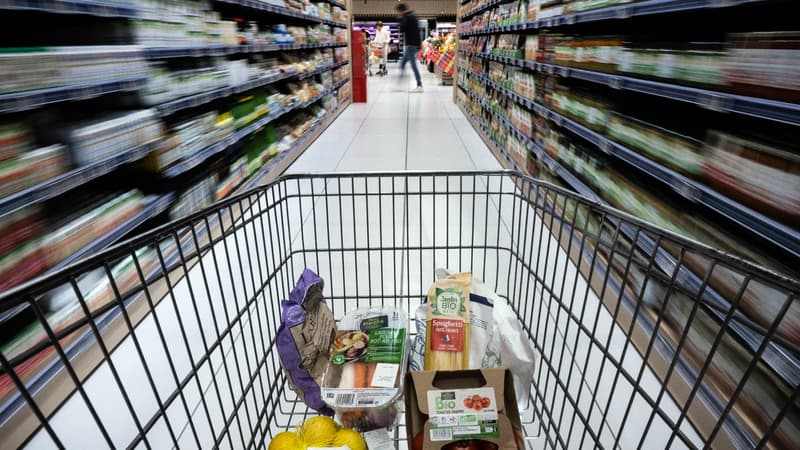“The French are melancholic”: households consume less than in other parts of Europe, cautious about the political uncertainty that restricts this essential engine of the economy, already shaken by the pandemic and the inflationary shock.
Food, appliances, cars, mobile phones, etc. Under successive governments since mid-2024, households are curbing their spending. However, these represent around half of the wealth produced annually in France.
“Consumption has been disappointing for several quarters”, growing less rapidly than purchasing power, notes Dorian Roucher, head of the economic department of the National Statistics Institute (Insee), interviewed by AFP.
Goods are more affected than services, he points out, citing food, whose accumulated fall is “of the order of 8% since 2022”, when prices skyrocketed after the Russian invasion of Ukraine.
The French consume fewer fruits, vegetables and fresh meats, considered more expensive, and more eggs, pasta or prepared meals. Textile purchases are also suffering, or automobile purchases due to a technological wait-and-see attitude.
The French are more pessimistic than their neighbors
If this phenomenon is observed since the health crisis (shops and restaurants were closed), then the inflationary crisis and the dissolution of the National Assembly in June 2024 caused a new shock.
A perception, however, disconnected from reality (increase in wages, resistance of the labor market, etc.): “It is psychological,” says Maxime Darmet, economist at Allianz Trade.
In its September economic report, INSEE noted that “household confidence, which was on an upward trend until the summer of 2024, has been declining almost continuously since then.”
“Their gains in purchasing power have been greater than in other parts of Europe,” due to lower inflation, expected to average 1% annually in 2025, “but their purchases there are less dynamic and the savings rate sets a new record every quarter.”
A record savings rate in 45 years (excluding health crisis)
While heated budget debates agitate the Assembly, the horizon remains cloudy. This climate of uncertainty may have been accentuated by international trade and geopolitical tensions. Household consumption should slow down to +0.5% this year, after +1.0% in 2024 (compared to +0.8% and +2.5% of purchasing power), according to the statistics institute.
As a result, the savings rate (the unspent part of income) would increase even further, unlike other European countries. It would reach 18.5% throughout the year (after 18.2%), a record in 45 years excluding the health crisis, while previously it had remained stable at around 15%.
According to Dorian Roucher, the increase in the savings rate was half due to the increase in returns on assets (life insurance, savings accounts, etc.) in a context of rising interest rates. Social benefits have also been indexed to high inflation. Thus, in 2024, two-thirds of the increase in the savings rate was driven by retirees, who saved their increased pensions.
Without “catch up”
There is “a specific type of pessimism in France since the summer of 2024, which continues to worsen”, linked to “an uncertainty effect”, says the statistician. This parsimony restricts growth, depriving it in particular of additional revenues such as VAT.
In the third quarter, French growth surprised positively (+0.5%), but household consumption grew more timidly, 0.1% as in the second quarter. No significant restart is expected by the end of the year. Its investments fell 0.4% during the period, especially in new homes.
Stéphane Colliac, economist at BNP Paribas, does not believe in a return to the pre-Covid trend. The savings rate would fall to around 17% by the end of 2027 and consumption would increase by 1% annually, “and not 1.5% on average as before.” It excludes “a catch-up effect: the high savings rate is not a reserve of money to be consumed later.”
In addition to demographic effects, some behavioral changes appear to be lasting: lower energy consumption by the French, who have become sober-minded since rising prices, growing appetite for takeaway restaurants or ecological motivation.
Source: BFM TV


